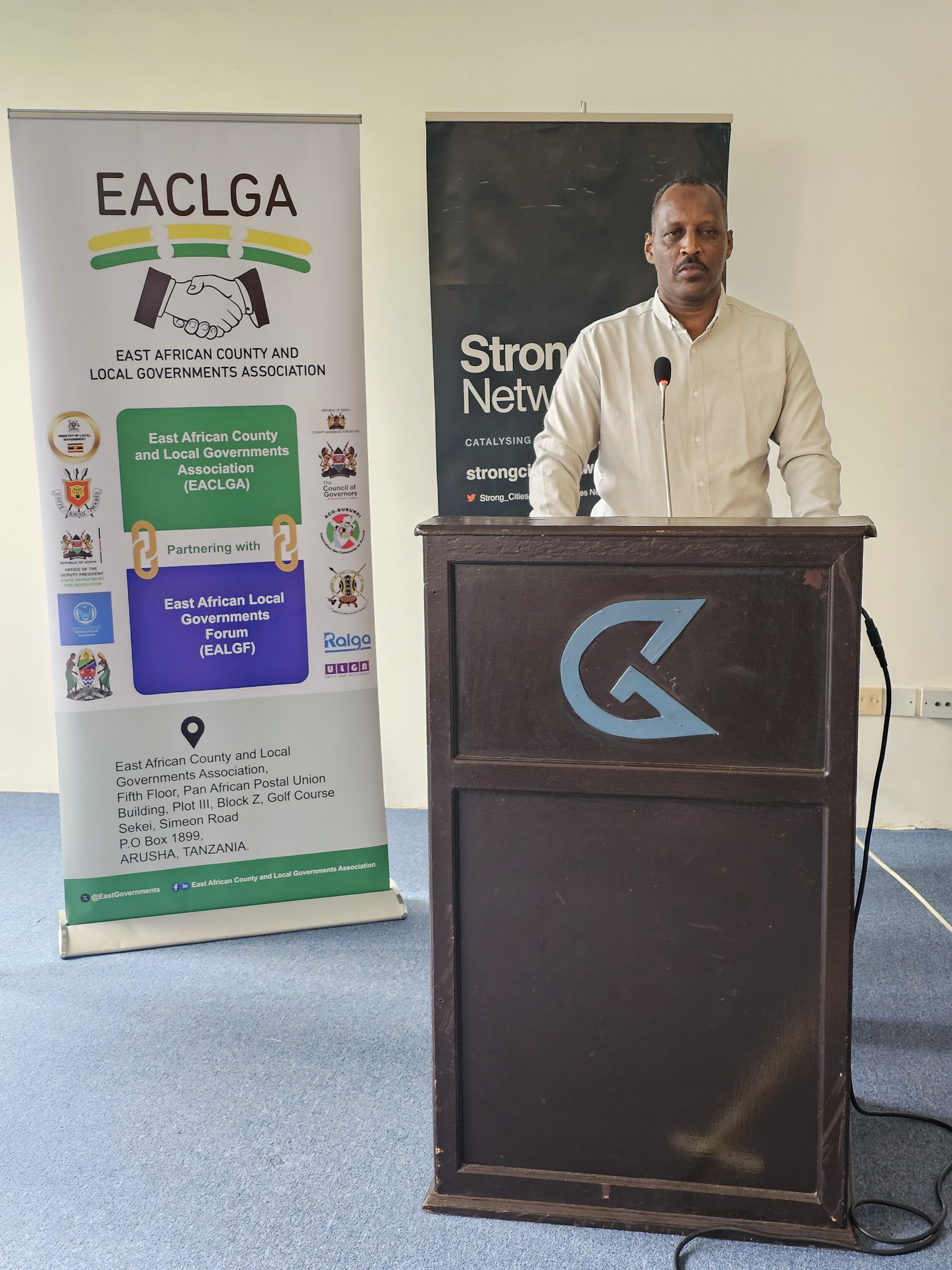 Mandera Lands executive Salah Alio speaks at the meeting / STEPHEN ASTARIKO
Mandera Lands executive Salah Alio speaks at the meeting / STEPHEN ASTARIKO
AN urban planning crisis is unfolding as towns grow faster than efforts to plan them, Mandera Lands executive Salah Alio has said.
Speaking at the East African Local Governments Forum in Mandera town Thursday, he said this should be of great concern to everyone.
“Urban planning in Kenya has become largely reactive rather than proactive. Settlements arise, often informally, and only after people move in do calls emerge for roads, water, sanitation and schools,” Alio said.
"Instead of guiding development, many county governments are merely chasing it, an approach that breeds inequality, congestion and land conflicts."
Alio is also the chair of the Land Sector Forum at the Frontier Counties Development Council.
“From the riverbanks of Dawa River in Fikow Khalalio to Nairobi and Nakuru, Malindi to Migori and Moyale, Kenya’s urban spaces are expanding at unprecedented rates,” he said.
"These changes, some visible, others insidious, are shaped by land speculation, real estate booms, new infrastructure and policy shifts.
“Yet amid this whirlwind of transformation, one thing remains clear: urban development is outpacing urban planning.”
Before the 2010 Constitution, local authorities actively zoned and managed land use.
Today, these responsibilities rest with both national and county governments, but enforcement has grown weak, he said.
"Illegal developments flourish, while approved
plans gather dust on government shelves. It’s not a lack of vision — Kenya has no
shortage of plans — but rather a chronic failure to implement them,” he added.
Alio said if Kenya is to build cities that
are inclusive and resilient, citizens must be engaged not just as passive
recipients but as co-creators of urban space.
He said while Kenya’s Constitution enshrines public participation, the principle is often reduced to a formality.
Too many planning meetings happen behind closed doors, or with only
a few elite voices heard.
"Urban planning is not just a technical process. It is a nation-building exercise. It determines whether our cities are engines of opportunity or breeding grounds for conflict."











